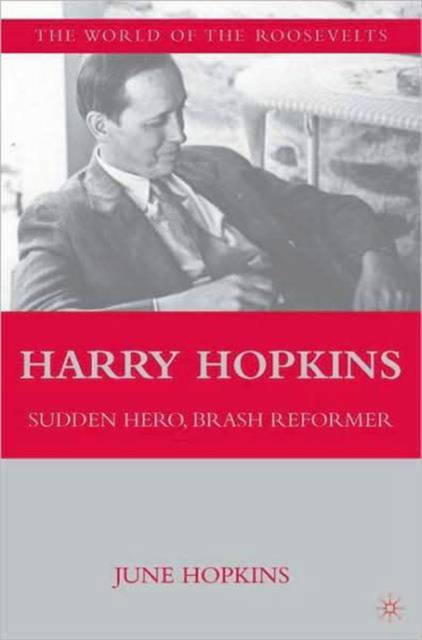
- Afhalen na 1 uur in een winkel met voorraad
- Gratis thuislevering in België vanaf € 30
- Ruim aanbod met 7 miljoen producten
- Afhalen na 1 uur in een winkel met voorraad
- Gratis thuislevering in België vanaf € 30
- Ruim aanbod met 7 miljoen producten
Zoeken
€ 91,95
+ 183 punten
Omschrijving
From 1912 to 1940, social worker Harry Hopkins committed himself to the ideal of government responsibility for impoverished Americans. This look at Hopkins' life and social work career broadens our understanding of the political and cultural currents that led to the Social Security Act of 1935, the bedrock of the American welfare state. Hopkins' experiences as an advocate and administrator of work relief and widows' pensions in New York City during the Progressive Era informed his contribution to welfare legislation during the New Deal years. Written by his granddaughter June Hopkins, this book not only clarifies the emergence of welfare policy but sheds considerable light on the present welfare debate. It also illuminates the life of one of the most influential Americans of the twentieth century.
Specificaties
Betrokkenen
- Uitgeverij:
Inhoud
- Aantal bladzijden:
- 271
- Taal:
- Engels
- Reeks:
Eigenschappen
- Productcode (EAN):
- 9780230613652
- Verschijningsdatum:
- 14/12/2008
- Uitvoering:
- Paperback
- Formaat:
- Trade paperback (VS)
- Afmetingen:
- 152 mm x 229 mm
- Gewicht:
- 430 g

Alleen bij Standaard Boekhandel
+ 183 punten op je klantenkaart van Standaard Boekhandel
Beoordelingen
We publiceren alleen reviews die voldoen aan de voorwaarden voor reviews. Bekijk onze voorwaarden voor reviews.







